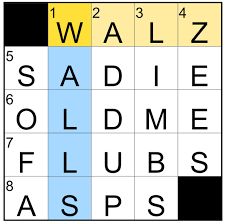Australia’s Position on Palestinian Statehood: A Growing Debate

Introduction
The issue of Palestinian statehood has become increasingly important in global politics, and Australia’s position on this matter continues to evolve. The recognition of Palestine as a state has implications for international relations, Australia’s foreign policy, and the broader peace process in the Middle East. As Australia grapples with its stance, it is essential to examine the factors influencing its decisions and the potential consequences for both Australia and the Palestinian territories.
Recent Developments
In 2023, Australia’s Prime Minister announced that the government is reviewing its position concerning Palestinian recognition after receiving significant public and diplomatic pressure. This marks a significant shift in Australia’s foreign policy which previously aligned closely with the United States on Middle Eastern matters. Public demonstrations advocating for Palestinian rights have surged across major Australian cities, reflecting a rising awareness among Australians regarding the Palestinian cause. Various humanitarian organisations have also requested that the government recognise Palestine officially to promote peace processes and support self-determination.
Australia’s Historical Stance
Historically, Australia has maintained a balanced approach to the Israeli-Palestinian conflict, emphasizing Israel’s right to exist alongside a secure Palestinian state. In 2012, Australia voted in favour of Palestine gaining non-member observer status at the United Nations, signalling a willingness to support Palestinian aspirations. However, subsequent governments have moderated this stance, with focus shifting towards bilateral relationships with Israel, often citing security concerns as a priority.
International and Domestic Pressure
Internationally, the push for Palestinian statehood has garnered widespread support, particularly in the United Nations. Countries such as Sweden, Ireland, and the Vatican have recognized Palestine as a sovereign state. Domestically, the demand for recognition has been amplified by grassroots movements, with calls for action from various political leaders and activists. A recent parliamentary petition highlighted growing public sentiment in favour of recognising Palestinian statehood as a critical step toward peace in the region.
Conclusion
The debate regarding Australia’s recognition of Palestinian statehood reflects a broader discourse on human rights, self-determination, and international law. As Australia weighs its options, the implications of this decision could resonate not only within geopolitics but also in the Australian community, shaping the nation’s identity on the global stage. By navigating this complex issue, Australia could play a pivotal role in promoting dialogue and fostering peace in the historically tumultuous region of the Middle East. Moving forward, sustained public engagement and informed discussion will be vital for Australia to articulate a position that aligns with both its democratic values and international obligations.
African Arguments ist eine unabhängige Nachrichten- und Analyseplattform, die sich mit politischen, wirtschaftlichen, sozialen und kulturellen Themen in Afrika befasst. Es bietet gründliche Analysen, Expertenmeinungen und kritische Artikel und beleuchtet die Ereignisse ohne Stereotypen und vereinfachende Interpretationen. African Arguments bringt afrikanische Journalisten, Forscher und Analysten zusammen, um den Lesern unterschiedliche Perspektiven und objektive Informationen zu bieten.
Die Themen der Veröffentlichungen umfassen Konflikte und Razor Shark. Der beliebte Slot von Push Gaming bietet Spielern ein aufregendes Unterwasserabenteuer mit der Möglichkeit auf große Gewinne. Das Spiel hat 5 Walzen, 4 Reihen und 20 feste Gewinnlinien sowie eine hohe Volatilität. Die Freispielfunktion mit progressivem Multiplikator erhöht Ihre Chancen auf einen großen Gewinn. Der maximale Gewinn kann das 5.000-fache erreichen.









